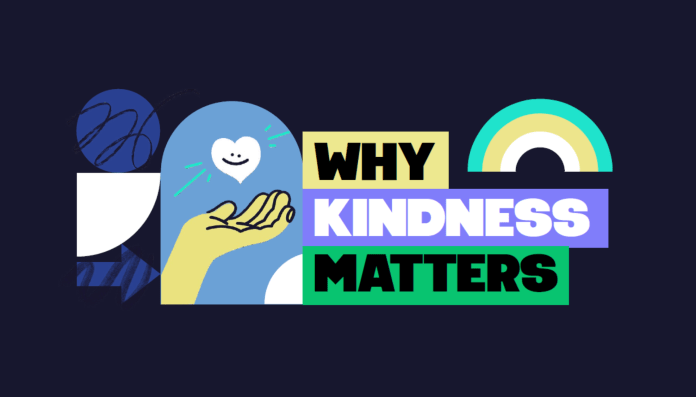Understanding why kindness matters and how it can be shown to ourselves and others is a great way you can help young people improve and maintain their mental health and wellbeing.
This school pack on kindness provide the materials and resources needed to support pupils to understand:
- how acts of kindness can improve mental health; and
- how to show kindness to themselves and those around them.
To develop these resources, we worked with pupils and staff participating in our Peer Education Project (PEP). PEP is a mental health, school-based project that aims to improve the mental health literacy of pupils. The project is freely available to any UK and international school.
The pack is designed to be used in secondary schools, but it also has lots of useful information for primary schools.
The pack includes:
- A lesson plan with PowerPoint slides and worksheets, that support pupils to explore the topic of kindness in more depth.
- An assembly plan with PowerPoint slides and posters to support the development of a whole-school approach to self-kindness and gratitude, and kindness and appreciation to others.
- Helpful guides for pupils, school staff, and caregivers on supporting ourselves and others with self-kindness and supporting others.
Helping others and being kind is about recognising when they need help and putting yourself out there, even if it’s not what you want to do.
Kindness research
In April 2020, we worked with YouGov to conduct an online survey of adults in the UK.1 We found that 63% agree that when other people are kind, it positively affects their mental health, and the same proportion agree that being kind to others positively affects their mental health. Studies have also found that being kind is linked to increased feelings of happiness, wellbeing, and life satisfaction2–6 for people of all ages.7–8
[1] Mental Health Foundation. (2020). Kindness research briefing. Available online: Kindness research briefing | Mental Health Foundation.
[2] Curry OS, Rowland LA, Van Lissa CJ, Zlotowitz S, McAlaney J, Whitehouse H. Happy to help? A systematic review and meta-analysis of the effects of performing acts of kindness on the well-being of the actor. J Exp Soc Psychol. 2018;76:320–9.
[3] Ko K, Margolis S, Revord J, Lyubomirsky S. Comparing the effects of performing and recalling acts of kindness. J Posit Psychol. 2019;
[4] Nelson SK, Layous K, Cole SW, Lyubomirsky S. Do unto others or treat yourself? The effects of prosocial and self-focused behaviour on psychological flourishing. Emotion. 2016;16(6):850–61.
[5] Aknin LB, Barrington-Leigh CP, Dunn EW, Helliwell JF, Burns J, Biswas-Diener R, et al. Prosocial Spending and Well-Being: Cross-Cultural Evidence for a Psychological Universal. J Pers Soc Psychol. 2013;104(4):635–52.
[6] Rowland L, Curry OS. A range of kindness activities boosts happiness. J Soc Psychol. 2019;159(3):340–3.
[7] Layous K, Nelson SK, Oberle E, Schonert-Reichl KA, Lyubomirsky S. Kindness Counts: Prompting Prosocial Behavior in Preadolescents Boosts Peer Acceptance and Well-Being. PLoS One. 2012;7(12).
[8] Poulin MJ. Volunteering predicts health among those who value others: Two national studies. Heal Psychol. 2014;33(2):120–9
